PROFIT$ OVER PEOPLE
Germany to prioritize coal trains over passenger services
Bloomberg News | August 21, 2022
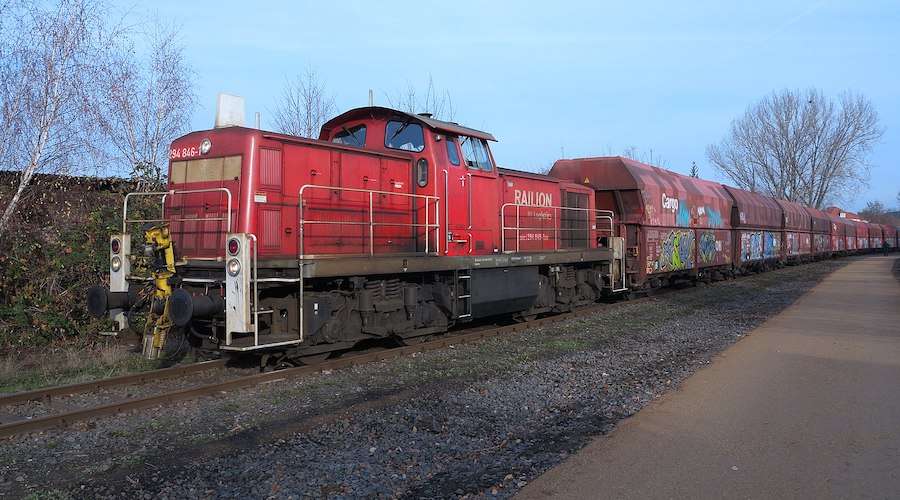
Diesel locomotive hauling a coal train in Brunswick, Germany. (Image by TeWeBs, Wikimedia Commons).
Germany plans to give coal trains priority over passenger services on its rail network as it struggles with an energy crunch that’s threatening the economy, the Welt am Sonntag newspaper reported, citing a draft proposal.

Priority is normally given to passenger transport in Germany, and timetables are geared toward it. As a result there’s a risk of chaos on the rails from making the change, according to the draft.
Germany faces an historic energy crisis, which has fueled inflation and put the country on the brink of a recession. Russia has drastically cut natural gas flows on the key Nord Stream 1 pipeline amid its war in Ukraine. And hot and dry weather has hampered fuel transportation via Europe’s main rivers.
The draft plan is seen likely to be passed promptly as there’s growing pressure to accelerate fuel transport via rail, Welt am Sonntag reported. Germany also needs to improve coal transport to move forward with its plans to reopen power plants to boost energy security.
(By Vanessa Dezem)
Peruvian Institute of Economy reports decrease in private mining investments
Staff Writer | August 21, 2022 |
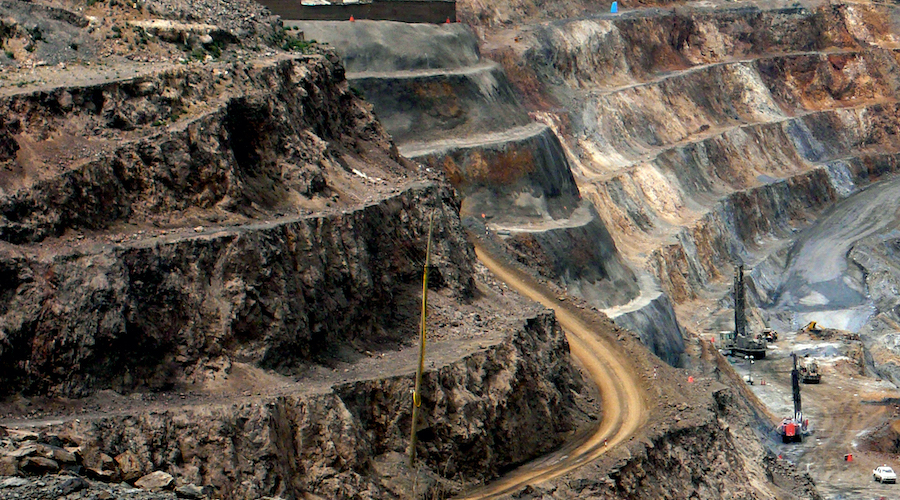
Mina Cerro de Pasco in Peru. (Reference image by Ottocarotto, Wikimedia Commons).
A recent report by the Peruvian Institute of Economy states that the country’s mining sector has seen a ‘concerning’ decrease in private investments.

According to the Institute, while the mining sector was responsible for 19% of total private investments in 2012, it now accounts only for 10%. This new baseline is similar to that of 2016, even though copper prices have doubled since then.
The report notes that civil unrest, particularly when it is spurred by difficult relationships between mining operators and the surrounding communities, is to blame for the dwindling initiatives led by private capital.
“Low mining investment is linked to the sustained loss of attractiveness the country has faced since 2018 and the increase in conflict seen in the last year,” the dossier, which was made public by local media, reads. “In Latin America and particularly among the region’s top mining economies, Peru is the country with the most conflicts and this indicator reduces companies’ interest to invest in the sector.”
Overall, private investment in Peru grew by 1% in 2022’s second quarter and the forecast is that it will go up only by 2.2% by the end of the year, lagging behind other mining countries such as Chile and Mexico.
A positive note
Despite the downward trend in private investments, the Ministry of Energy and Mines announced that between January and May 2022, metallic and non-metallic mining exports totalled $16.3 billion, a 6.8% increase over the same period in 2021.
According to the Mining Statistics Bulletin, the mining subsector was responsible for 59.8% of total exports through May 2022.
Copper, gold, zinc, and iron ore topped the list of export products, accounting for 88.9% of the total value of mining exports.
Copper exports, in particular, reached $8.2 billion as of May, thus showing a 5.7% increase when compared to the same period in 2021.
The red metal is Peru’s main export product, accounting for 30% of total shipments.
Eurasian Resources to invest $230 million to build wind power plant in Kazakhstan
Staff Writer | August 22, 2022 |
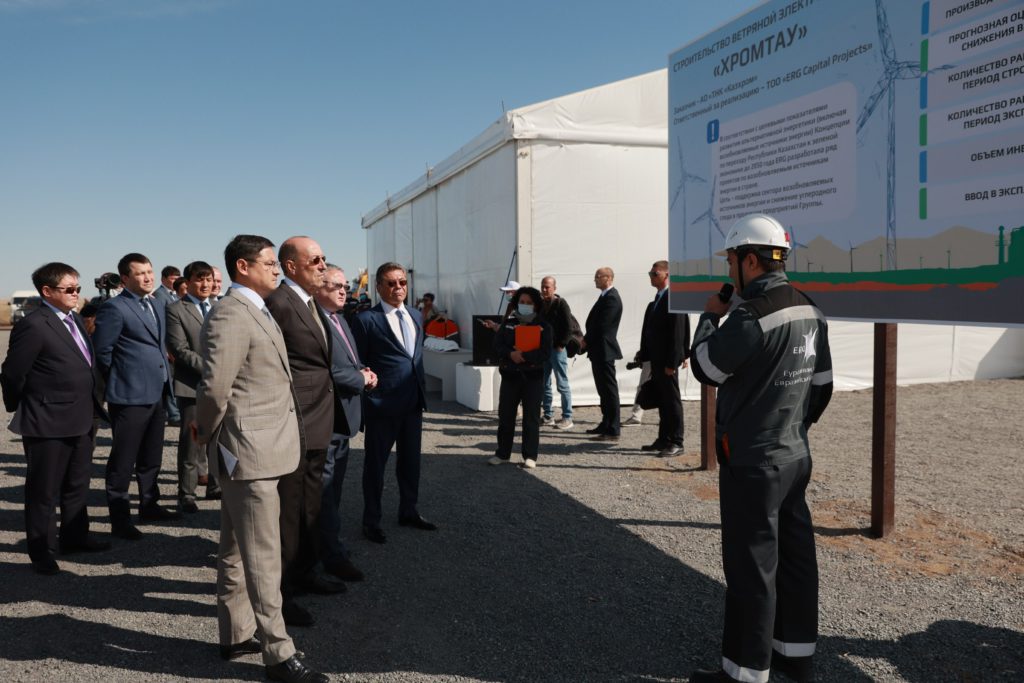
Site of Khromtau wind farm. Image from ERG Resources.
Eurasian Resources Group announced Monday that it plans to invest nearly KZT110 billion ($230m) in building a major wind power plant in Kazakhstan, the Group’s home country.

To be commissioned in 2024, the new renewable energy facility will have a capacity of up to 155 MW, making it the most powerful plant in the Aktobe region, and is expected to reduce CO2 emissions by around 520,000 tons annually, the company said.
The wind turbine park will extend over 150 hectares near the town of Khromtau in Kazakhstan. About 300 jobs will be created during the construction phase, and the facility will provide 30 permanent jobs once it is commissioned.
The wind power generated will be used to supply ERG’s Kazchrome Donskoy GOK plant, the largest industrial enterprise in the Aktobe region, and cover the plant’s growing energy needs as it increases its production capacity in the coming years. The wind farm will supply energy to neighbouring industrial facilities and the Aktobe region more widely, reducing Kazakhstan’s usage of coal.
This will be ERG’s first proprietary wind farm project, and forms part of the Group’s ESG strategy and decarbonisation program. In total, by 2030, ERG plans to reduce its emissions to air by 56%, emissions to water by 30% and water consumption by 33% through its energy strategy.
“President of the Republic of Kazakhstan Mr. Kassym-Jomart Tokayev recently announced that Kazakhstan intends to achieve carbon neutrality by 2060, and ERG is in full support of this initiative,” ERG board chairman Alexander Machkevitch said in the statement.
“This new plant is an important step and I believe that Donskoy GOK’s transition to wind power will be a great success, and one that we will look to replicate at ERG’s other facilities,” he said.
“We hope that the construction of this wind farm serves as an example for other large enterprises in Kazakhstan, and takes the country closer to the ambitious goal of becoming a carbon-neutral state.”
Trevali halts trading as Burkina Faso managers face trial following fatal mine flooding
Reuters | August 22, 2022
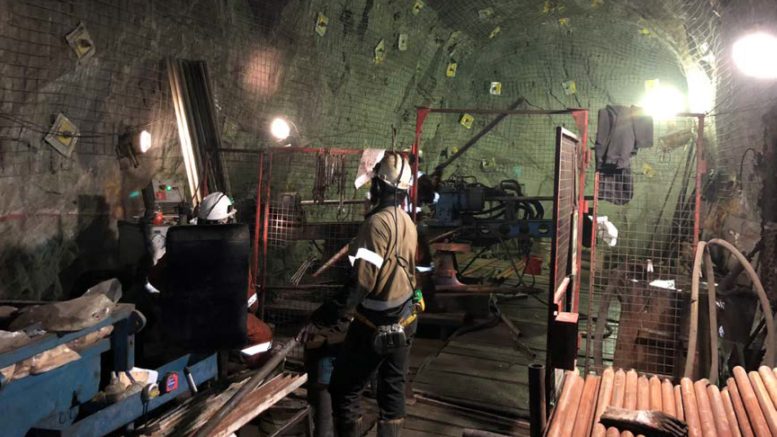
Drillers underground at Trevali Mining’s Perkoa zinc mine in Burkina Faso. Credit: Trevali Mining
Canada-based Trevali Mining halted trading on Monday and said two of its managers were being held in Burkina Faso following an April flood that killed eight miners.

The company did not give a reason for the trading halt on the Toronto Stock Exchange. It said it also expected trading to be halted on the Lima Stock Exchange, OTCQX and the Frankfurt Stock Exchange, and that its common shares may be delisted.
One of Trevali’s three main operating assets is the Perkoa zinc mine in Burkina Faso, where operations have been suspended since torrential rainfall caused flash flooding on April 16.
The floodwaters breached the mine’s safety controls and submerged the site with eight workers deep underground. Their bodies were found after a long search.
A Perkoa mine manager and a manager from the company’s contractor Byrnecut have been detained and face charges relating to the flood, the company said in a statement. It did not provide further detail.
Burkina Faso’s public prosecutor could not immediately be reached for comment.
Burkina Faso’s prime minister said shortly after the flood that managers of the mine were banned from leaving the country while investigations were underway into the cause of the accident.
Trevali has said it was caught unawares by the flood, which occurred during the West African country’s usual dry season.
(By Thiam Ndiaga and Nellie Peyton; Editing by Edward McAllister and Mike Harrison)
Colombia’s new president threatens to blow up illegal mining operations
Staff Writer | August 21, 2022 |
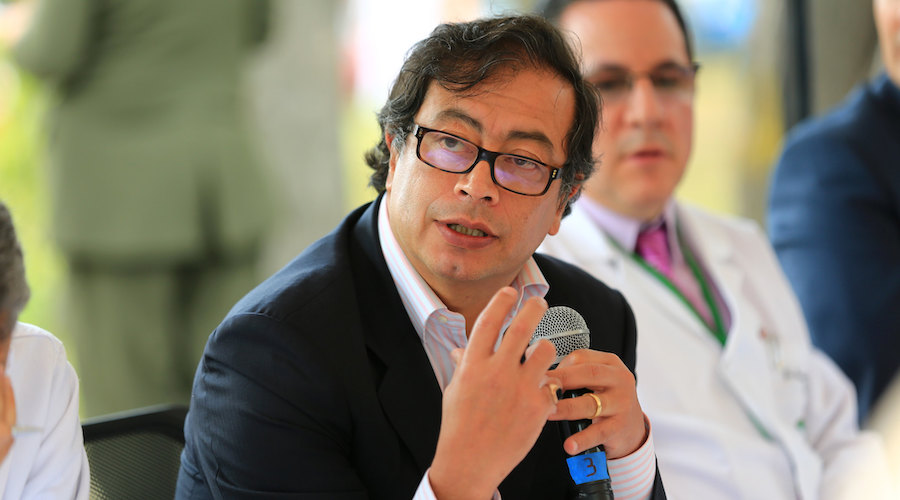
Colombia’s president Gustavo Petro. (Image by Petro’s press team, Flickr).
Colombia’s new leftist president Gustavo Petro said that the armed forces will dynamite every dredge that is being used across the country to mine gold illegally.

During a meeting of Colombia’s Security Council, which was held in the Bolívar department – one of the areas affected by illegal mining operations – Petro mentioned that his government will push for a mining policy that greatly differs from what’s already in place based on the existing Mining Code. Thus, a new bill is to be introduced before Congress.
“This new mining policy implies that the small, traditional miner can obtain long-term concessions granted by the State, which will allow him to develop his activity in a sustainable manner without affecting the environment,” the president said.
Gustavo Petro emphasized that the bill will have an environmental focus and that local communities should be at the centre of all relevant civil, military and police operations that are carried out to combat illegal mining.
Zijin restarting production at Colombia gold mine after blockade
Reuters | August 22, 2022 |
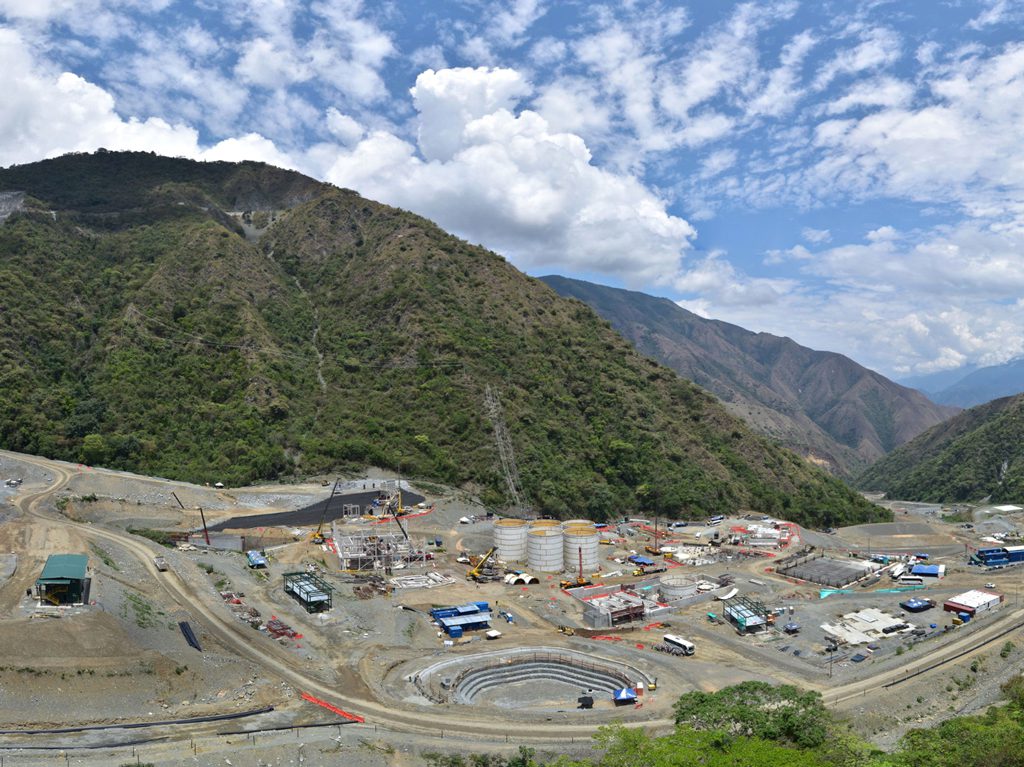
Buritica project, Colombia. Image: Continental Gold
Zijin Mining is restarting normal production at its Colombia gold mine, a spokesperson said on Monday, after people from the surrounding community ended more than a week of road blockades.

The blockades were set up near the mine in Buritica municipality, in Antioquia province, on Aug. 12 as community members demanded a rescue mission to find informal miners allegedly trapped in a tunnel.
Despite several rescue missions, no bodies were handed over to authorities, but the town’s mayor has said two miners are believed to have died. The blockade was lifted on Sunday.
Normal work was being restarted, a Zijin spokesperson said in a message to Reuters, though they did not have information on when the mine would be back at full production.
Thousands of wildcat miners work in sometimes-deadly conditions in dozens of informal tunnels in Buritica, including many within or adjoining Zijin’s concession.
The activities, controlled by the Clan del Golfo crime gang, are a safety issue for the surrounding community and affect Zijin’s output, a Reuters investigation last year showed.
Zijin produced 196,493 ounces of gold last year and 294,581 of silver, according to its website.
Blockade at Zijin’s Colombia gold mine is lifted
Reuters | August 22, 2022
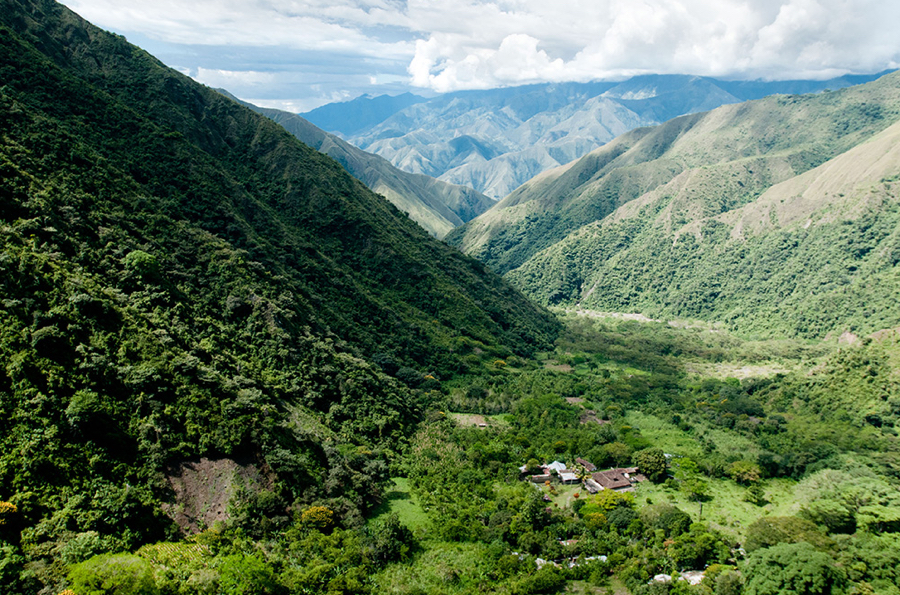
The Buriticá project. Image by Continental Gold
Road blockades set up by community members around Zijin Mining’s Colombia gold mine were lifted, a government official said on Sunday, after more than a week of protests which hit the Chinese company’s production.

The blockades were set up around the mine in Buritica municipality on Aug. 12 to demand a rescue mission to find informal miners allegedly trapped in a tunnel.
It was not clear how many miners were presumed to be trapped or killed or what incident may have occurred in the tunnel, and despite several rescue missions, no bodies have been found.
“Mayor Hernando Graciano of the municipality of Buritica informs me that the blockade of the roads to the municipality and to the mine has been lifted,” Luis Fernando Suarez, security secretary of the Antioquia department, said on Twitter.
Production was stopped because of the blockades, the company had said.
A Zijin spokesperson said they had received the news and would later inform when “normal activities will resume.”
Thousands of wildcat miners work in sometimes-deadly conditions in dozens of informal tunnels in Buritica, including many within or adjoining Zijin’s concession.
The activities, controlled by the Clan del Golfo crime gang, are a safety issue for the surrounding community and affect Zijin’s output, a Reuters investigation last year showed.
(By Julia Symmes Cobb and Anthony Esposito; Editing by Lincoln Feast)
Electric vehicle industry prizes steel over aluminum, Cleveland-Cliffs CEO says
Bloomberg News | August 22, 2022 |
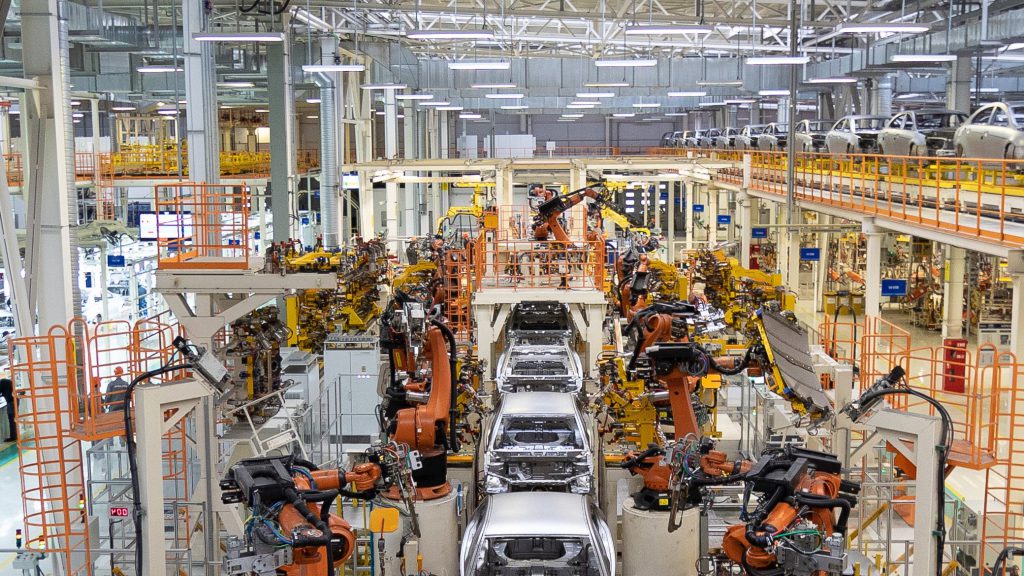
Assembly line (Adobe Stock)
A Detroit automaker and US steel producer sparred at an industry gathering this week on whether steel or aluminum is the preferred metal for electric-vehicle bodies.

The top executive of Cleveland-Cliffs Inc., the second largest US steelmaker, said that EV companies were preferring steel over aluminum. But an executive director from General Motors Co., the biggest US automaker, said there’s no broad brush.
“It’s hard to say we’re going to have more steel, we’re going to have more aluminum, because every application will be specific to that vehicle,” Thomas Hosea, who oversees GM’s global purchasing and supply chain, said Tuesday at a steel conference in Atlanta. “If you have a vehicle with a bigger battery you’ll need to lightweight it more than a lower-range vehicle.”
The debate on whether to use more steel or aluminum in automobiles took center stage a decade ago as automakers moved to lighten cars to meet new government requirements to extend how far vehicles must travel on a gallon of gas. Aluminum seized a watershed moment when Ford Motor Co. chose to outfit the nation’s top-selling F-150 truck with the metal, improving its per-gallon efficiency on the highway by 29% from the older steel-bodied model.
Steel has traditionally been a favored metal due to its high strength and low cost. The benchmark steel price is 39 cents a pound, whereas aluminum costs almost three times that at $1.10 per pound. Still, the metals discourse is being revived as automakers shift to produce more EVs amid a global push to transition economies from fossil fuels toward cleaner energy sources to help fight climate change.
Batteries are the heaviest part of EVs and generate a massive amount of heat, which makes aluminum an attractive material to both lighten the vehicle and encase the battery with a metal that can withstand high temperatures without melting. But the steel industry made major adjustments years ago in response to the light-weighting revolution by developing so-called advanced high-strength steels that are stronger than aluminum and can match it in weight.
Cleveland-Cliffs Chief Executive Officer Lourenco Goncalves said Monday that EV companies are going “all-in” on steel as they build out plans for the transition away from combustion-engine vehicles. The comment carries significance given that Cliffs is the largest steel provider to the US auto market, and a metal supplier to GM, Ford, Toyota Motor Corp., Nissan Motor Co. and Mercedes-Benz AG.
(By Joe Deaux)
Green economy may lead to sulfur shortages – study
Staff Writer | August 23, 2022 |
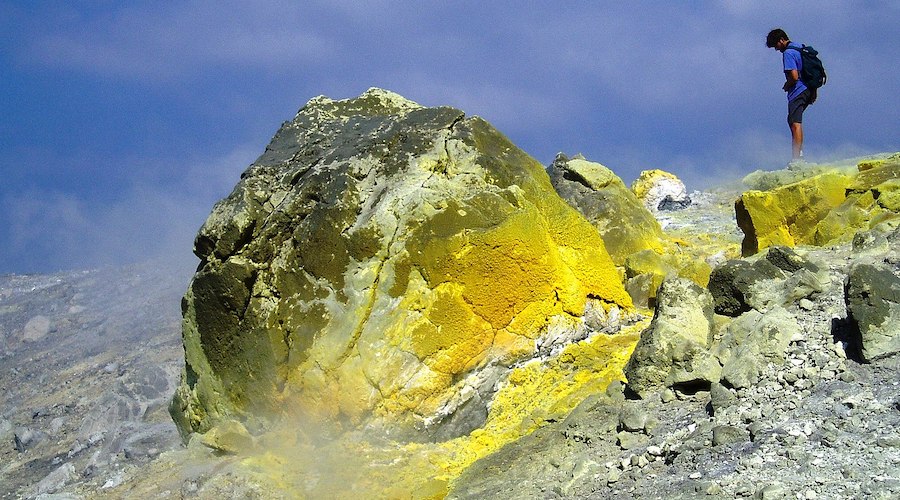
Sulfur. (Image by Raymond M. Coveney, Wikimedia Commons).
A projected shortage of sulfuric acid could stifle green technology advancement and threaten global food security, according to a paper published in The Geographical Journal.

Sulfuric acid is required for the production of phosphorus fertilizers and for extracting battery metals such as nickel and cobalt from ores.
The recent study points out that global demand for sulfuric acid is set to rise significantly from 246 to 400 million metric tons by 2040—a result of more intensive agriculture and the world moving away from fossil fuels.
The authors estimate that this will result in a shortfall in annual supply of between 100 and 320 million metric tonnes—between 40% and 130% of the current supply—depending on how quickly decarbonization occurs.
Currently, over 80% of the global sulfur supply is in the form of sulfur waste from the desulfurization of crude oil and natural gas, which reduces the sulfur dioxide gas emissions that cause acid rain. However, decarbonization of the global economy to deal with climate change will significantly reduce the production of fossil fuels—and subsequently the supply of sulfur.
The paper, led by researchers at University College London, is the first to identify this issue. The authors suggest that unless action is taken to reduce the need for this chemical, a massive increase in mining will be required to fill the resulting resource demand.
“Sulfur shortages have occurred before, but what makes this different is that the source of the element is shifting away from being a waste product of the fossil fuel industry,” lead researcher Mark Maslin said in a media statement.
“What we’re predicting is that as supplies of this cheap, plentiful, and easily accessible form of sulfur dry up, demand may be met by a massive increase in direct mining of elemental sulfur. This, by contrast, will be dirty, toxic, destructive, and expensive.”
In Maslin’s view, research is urgently needed to develop low-cost, low-environmental impact methods of extracting large quantities of elemental sulfur from the abundant deposits of sulfate minerals in the earth’s crust.
He believes the international community should consider supporting and regulating sulfur mining to minimize the impacts of the transition and also to avoid cheap unethical production from distorting the market.
“Our concern is that the dwindling supply could lead to a transition period when green tech outbids the fertilizer industry for the limited more expensive sulfur supply, creating an issue with food production, particularly in developing countries,” said co-author Simon Day.
How the estimations were made
To determine their findings, the researchers estimated three sulfuric acid demand scenarios from 2021 to 2040, based on historic and forecast demand, with annual growth rates ranging from 1.8% to 2.4%.
The authors also explored several ways in which demand for sulfur could be reduced as part of the transition to post-fossil fuel economies, including recycling phosphorus in wastewater for the fertilizer industry, increasing the recycling of lithium batteries, or using lower energy capacity/weight ratio batteries, as these require less sulfur for their production.
They also prompt crucial questions about whether it would make economic sense to invest in alternative production methods, given it is not currently possible to predict how quickly the supply of sulfur as a waste product from oil and gas desulfurization will decrease as the decarbonization of the global economy is only just starting.
South32 in talks with Appin coal mine workers over pay
Reuters | August 23, 2022
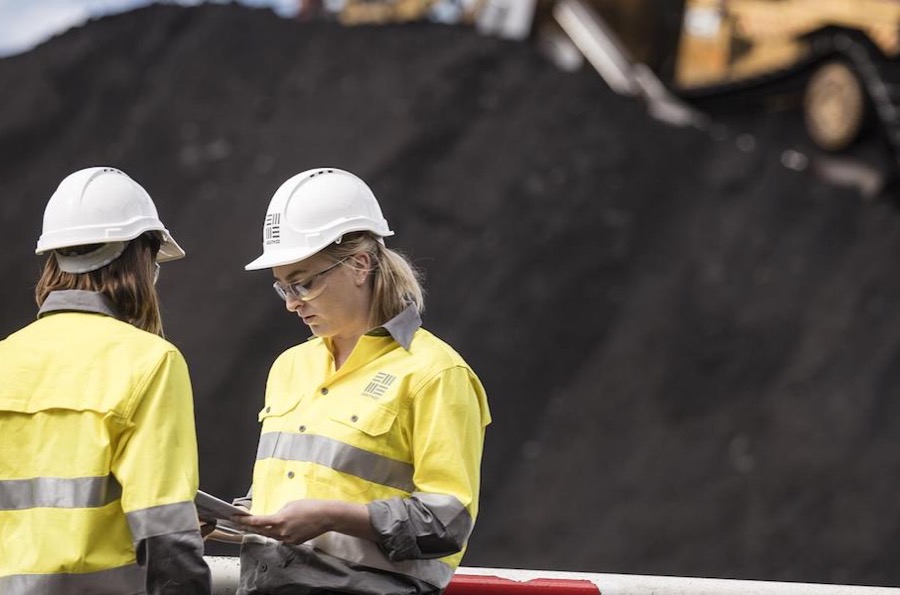
(Image: Illawarra Metallurgical Coal operation in Australia, courtesy of South32.)
South32 Ltd said on Wednesday it was in pay-related negotiations with its Appin coal mine workers following their threat to stage a partial strike for a week.

Australia’s Mining & Energy Union had earlier announced Appin workers’ intention to stop work for five to six hours across all shifts at the metallurgical coal mine starting Wednesday night till Aug. 31.

The union’s plan to take strike action comes as Australian coal miners are seeing a boom in business, thanks to a surge in demand from Europe, which is trying to cut its reliance on Russian coal.
“South32 Illawarra Metallurgical Coal is currently engaged in enterprise bargaining with employees and their representatives in relation to a proposed new Appin Enterprise Agreement,” the Perth-based miner said.
South32 is expected to show a huge jump in underlying profit when it reports its earnings on Thursday, according to Refinitiv data.
“Now that coal prices and profits are booming and inflation is rising, workers are seeking to have these changed conditions reflected in their new Enterprise Agreement,” said Bob Timbs, the union’s South Western District vice president said in a statement.
Inflation in Australia sped to a 21-year high last quarter and is expected to pile more pressure on food and energy costs, prompting the central bank to take an aggressive rate-hike stance to temper its effect on the cost of living.
(By Jaskiran Singh and Indranil Sarkar; Editing by Subhranshu Sahu and Anil D’Silva)
Boliden declares force majeure on zinc amid Norway strike
Reuters | August 23, 2022 | 8:20 am Europe Zinc
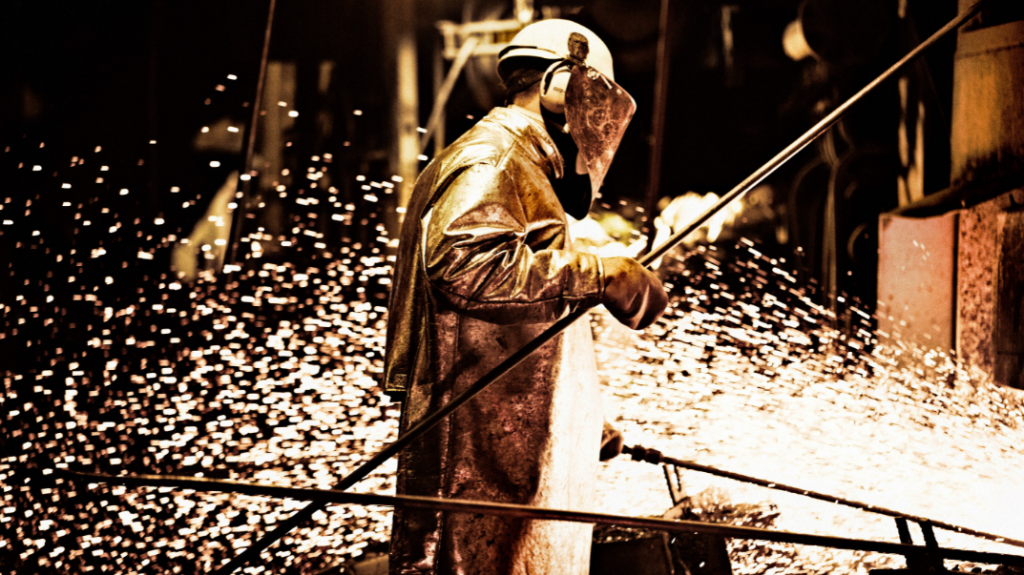
Harjavalta nickel smelter in Finland (Credit: Boliden)
Swedish miner Boliden has declared force majeure on zinc deliveries to Europe due to a strike among Norwegian electrochemical industry workers, although some production is still running, a company spokesperson said on Tuesday.

The strike, which started on Monday, is targeting several electrochemical plants, including Boliden’s zinc smelter in Odda and Glencore’s nickel refinery in Kristiansand as well as aluminum output at Norsk Hydro and Alcoa.
“Zinc production is still running to a certain extent but of course we wish for the situation to return to normal, not least to be able to meet demand from our customers,” a Boliden spokesperson said in an emailed statement.
“The situation is however out of Boliden’s control and difficult to foresee the development of,” he added.
(By Stine Jacobsen; Editing by Terje Solsvik)











